As the cannabis market expands, so does the range of the cannabinoids available for sale. THC and CBD are common these days, but new products are constantly coming to market, like D8, HHC, and now THCA (tetrahydrocannabinolic acid).
What exactly is THCA, how is it made, and is it safe?
THC vs THCA in flower
How is THCA different from THC? Let’s take a trip back to chemistry class.
The cannabis plant creates many compounds during its growth cycle, including cannabinoids. These compounds are secondary metabolites, which means that they’re not necessary for growth, development, or reproduction. The aromatic terpenes produced by the plant, as well as flavonoids, antioxidants that give cannabis some of its colors, are also secondary metabolites. 1
But when it comes to cannabinoids, the plant doesn’t just make THC or CBD. In fact, the plant itself doesn’t even make either of those “neutral” cannabinoids. Instead, the cannabis plant creates carboxylic acids (aka “acidic” cannabinoids) like THCA and CBDA as the precursor to cannabinoids. These acids develop into THC and CBD through decarboxylation – most often via the heat of a lighter or oven. THCA exists in the highest levels in freshly harvested flower and remains mostly in the neutral form in properly stored flower until heat is applied. 2
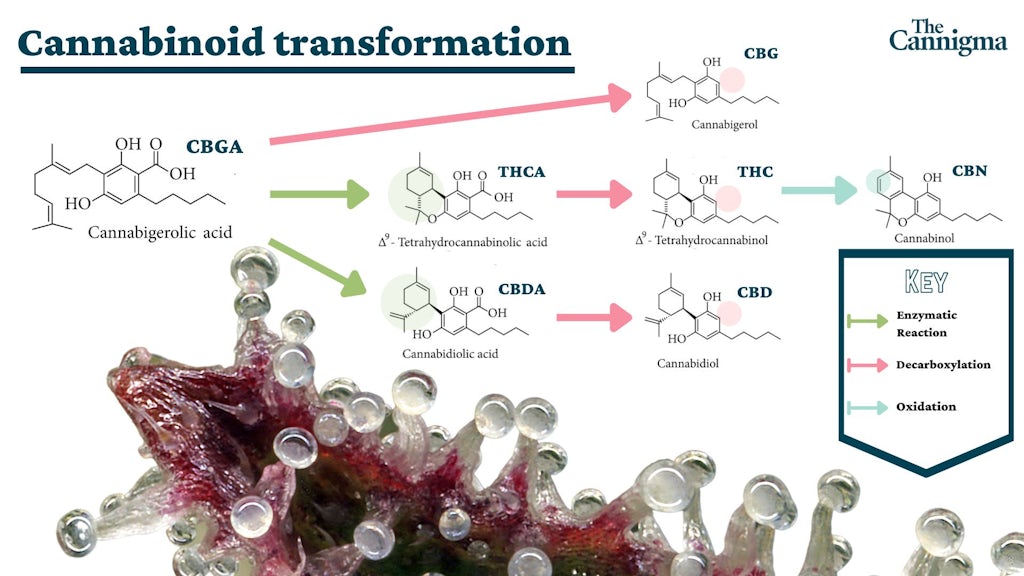
So in general, all THC in cannabis flower is actually present as THCA flower until heat is applied. When you buy a Q of Sour Diesel or an ⅛ of Super Lemon Haze, it has high levels of THCA, not THC, until it’s rolled and sparked or made into an edible.
Even in acidic form, THCA is thought to interact with the endocannabinoid system and may have health benefits. Carboxylic acids have many of the same benefits as their cannabinoid counterparts.
- THCA may help reduce nausea and prevent vomiting, at least in animal models 3
- Based on early studies, THCA could deliver neuroprotective effects, with potential use in neurodegenerative diseases like Alzheimer’s disease, Huntington’s disease and more. 4 5
- THCA is thought to reduce inflammation throughout the body and help relieve pain. 6 7
When consumed without being heated, THCA acts without intoxicating (high) effects. There are THCA tinctures on the market that take advantage of this.
Does THCA flower get you high?
In acidic form, THCA is non-intoxicating, which means it won’t get you high if you ingest it. If you’re using a THCA tincture or transdermal patch, you may feel some effects or changes, but it won’t produce a true “high.” If you eat raw THCA flower, in smoothies or juices, it will likely not get you high.
However, when heat is applied to THCA, like in a dab pen or in a lit joint, it begins to decarboxylate into THC. Just like when you smoke THC flower, it can get you high.
Is THCA legal?
THCA is legal – depending on who you ask.
“When you define THCA by the 2018 Farm Bill definition of cannabis, which is measured by how much delta-9 THC is in a product, THCA is legal. But it’s a grey area.” said Jodi Green, Counsel at Feldman Legal and advisor to the Cannigma.
“The DEA looks at it differently. They issued an advisory opinion in 2023 that said based on their testing method (which is a post-decarb method) it’s all D9, a federally illegal cannabinoid. An advisory opinion is not law, but it has influence. The legality of THCA comes down to the testing method, and whether it’s decarbed. It’s very gray.”
Green cautions against consumers thinking THCA is exempt from cannabis prohibition on a state level.
“There are variances in state laws and how each state defines total THC content. In my home state of California, total THC content includes both D9 and THCA, as well as any other intoxicating minor cannabinoids,” said Green. But that’s not true for all states. “It’s also quite challenging for law enforcement to tell the difference between THCA products and D9. If it looks like weed and smells like weed, it can still be treated like weed.”
How is THCA sold in legal markets then?
The 2018 Farm Bill changed the cannabis industry in the US. It established the federal government’s authority over the hemp market and federally legalized the hemp plant, which was defined as a cannabis plant with less than 0.3% THC by dry weight. But as above, most properly-stored cannabis doesn’t contain very much decarboxylated THC, which is where the confusion starts.
According to most definitions of total THC, including the definition proposed by the US Drug Enforcement Agency (DEA) and the final hemp rules set for by the US Dept of Agriculture (USDA) the total is calculated by an equation to account for THCa and THC: THC + (0.877 x THCa) = total THC. However, in the 2018 farm bill, the only limitation set forth was on delta-9 THC, thus there is a regulatory and statutory mismatch – a loophole.
The 2018 Farm Bill led to a boom in the hemp space – farmers across the country started planting hemp only to find an underdeveloped supply chain where supply outpaced demand, and the price of hemp plummeted. Seeking to cut their losses, the vast majority of this excess hemp was eventually extracted and turned into CBD isolate, which led to plummeting prices of pure CBD.
With CBD isolate on the cheap and little demand for it, producers looked for other ways to use this raw ingredient and found science dating back over 70 years explaining how to do it. The hemp market exploded with delta-8 products, and like the boom and bust before, led to a drop in delta-8 prices, once again squeezing businesses. This became an unhealthy cycle for businesses in the hemp space – focus attention on one cannabinoid, flood the market, and watch prices fall.
This happened with CBD and it happened again with hemp. But there is still a steady supply of hemp coming in from farms that needs to be processed and sold, so retailers and manufacturers are always looking for new angles to sell it with – enter THCA.
How is THCA flower made?
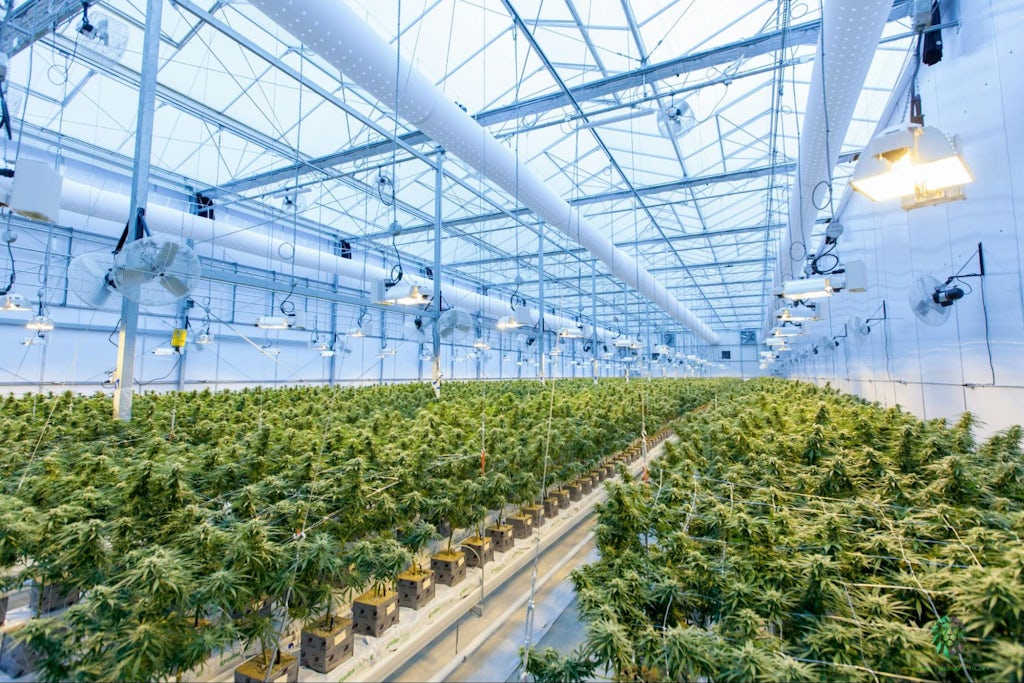
Now to the crux of the issue – how is THCA flower actually made? Where does it come from? Good question. The answer is usually “from marijuana.”
THCA exists in cannabis naturally. It is the only form of THC that the plant actually makes, so in the raw flower it is often the most abundant cannabinoid to appear on a COA. Any THC-rich cannabis flower harvested is technically THCA flower. But most of the time when retailers are selling THCA flower, they’re technically marijuana flower – ie Type I cannabis – but are selling it as hemp flower THCA.
Another way to make THCA flower is to extract the THCA from cannabis plants, usually Type I marijuana plants, and incorporate it into products being marketed as hemp. THCA occurs in high quantities in cannabis plants and can be extracted and isolated as THCA powder, “diamonds” or crystals. This THCA isolate can then be incorporated into other products, like pre-rolls or even hemp buds. However, using THCA isolate presents its own challenges as THCA is not very shelf-stable, and readily converts to THC when exposed to light and heat, meaning. That means these products could be formulated as “hemp” but as THCA degrades into THC, they could fall out of compliance while the product sits on the shelf. 8
Is THCA safe?
If this compound is legal, what’s the problem?
Since they are not part of a state-driven medical or recreational cannabis program, THCA hemp products are generally unregulated. When products are unregulated, there’s no incentive for companies to ensure a safe supply chain or to test them.
There is also the danger of heavy metals and pesticides in your THCA flower. Legal cannabis must be tested to prove there is no contamination, but THCA flower may not be tested with the same rigor as legal marijuana products. There’s no regulatory body to enforce testing standards on companies selling THCA products the way that there is for state-run legal marijuana products.
Even when there is testing, the legal market doesn’t have a perfect track record for lab tests. Lab shopping, potency inflation, and product recalls are common in the cannabis industry. This means you may get THCA flower that is more or less potent than the packaging claims, and is not consistent from batch to batch.
Is THCA flower sprayed?
The short answer is usually no (but not always.)
THC (both delta-8 and delta-9) is liquid at room temp but THCA is solid/crystalline so THCA does not spray well onto hemp flower. Much of THCA flower on the market is grown similarly to traditional marijuana plants, with care taken to preserve the carboxylic acids. Even that is controversial, with some in the market insisting that due to natural decarboxylation, the vast majority of THCA flower on the shelf, if tested, would be over the 0.3% THC limit, and therefore illegal.
Additionally, THCA flower may be made with THCA isolate, which means your product has been chemically modified, although not sprayed.
Why is THCA becoming popular?
For cannabis companies, THCA products offer similar benefits as D8 or D10. These products do not fall under the Schedule-I status like“marijuana” and are not regulated the same at the state or federal level. There are far fewer regulations and license restrictions for cannabis companies looking to cash in on alternative cannabinoids.
Additionally, THCA products are not subject to the same excise, potency, or IRS taxes, which can make them more profitable. In short, THCA products are hugely beneficial for producers and because they’re less regulated, require less licensing, and continue to have higher profit margins.
The main benefit of THCA for consumers is the fact that it exists in a federal loophole, which means people can purchase traditional marijuana pseudo legally. The market for THCA products exists mainly in states that are still highly prohibited from cannabis. THCA products are most popular in Texas, North Carolina, Tennessee, Georgia, Alabama, Mississippi, Florida, and Wisconsin, to name a few.
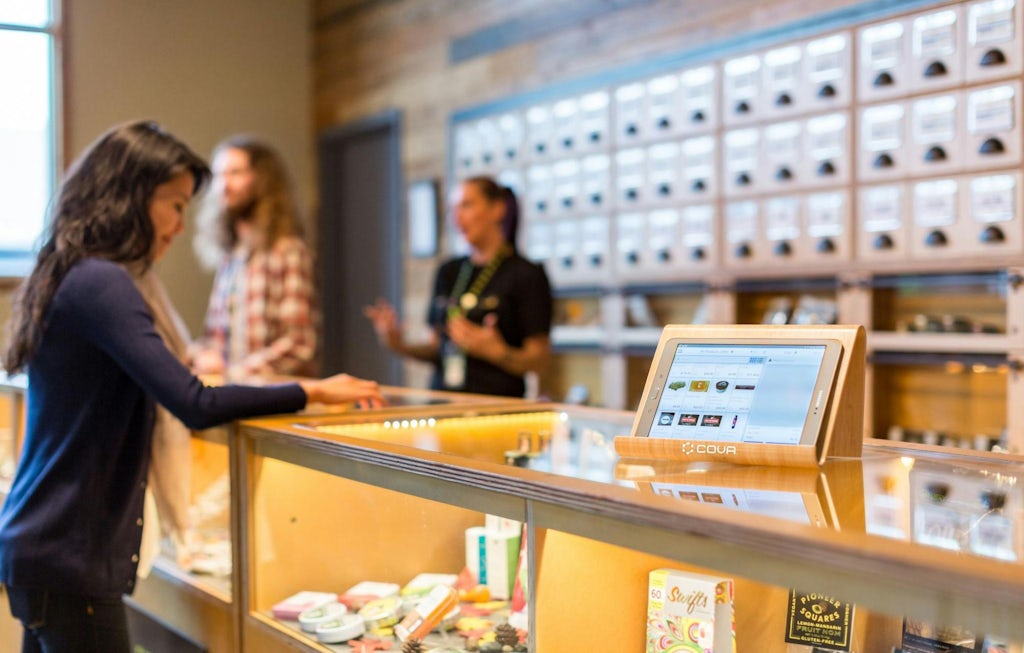
Since THCA is the acidic form of THC that is converted via heat, consumers can still get high with THCA products – it’s just like smoking regular marijuana. Rolling a joint with THCA flower is no different than rolling a joint of Gorilla Glue or OG Skunk, which means that people who live in states where cannabis is still illegal can “legally” roll up and get stoned.
Where can you buy THCA online?
You can buy THCA in some hemp stores and online. Many online retailers offer THCA flower shipped to 50 states. These are usually the same retailers offering D8 and D10 products, but consumers in prohibition states have to make do with what’s available.
You may also see THCA products available in other businesses like gas stations, hookah stores, and smoke shops. Always use your best judgment when buying THCA online or in stores. Read the COA (if there is one) and research the brand to better understand how they’re making THCA flower.
THCA exists naturally in all cannabis plants, but it’s currently being marketed and sold as a “cannabis alternative” in markets where marijuana isn’t legal or is only available with a medical card. If you’re purchasing THCA flower, do your research and use your best judgment to buy products that are safe and tested.
Sources
- Gonçalves J, Rosado T, Soares S, Simão AY, Caramelo D, Luís , Fernández N, Barroso M, Gallardo E, Duarte AP. Cannabis and Its Secondary Metabolites: Their Use as Therapeutic Drugs, Toxicological Aspects, and Analytical Determination. Medicines (Basel). 2019 Feb 23;6(1):31. doi: 10.3390/medicines6010031. PMID: 30813390; PMCID: PMC6473697.
- McPartland JM, MacDonald C, Young M, Grant PS, Furkert DP, Glass M. Affinity and Efficacy Studies of Tetrahydrocannabinolic Acid A at Cannabinoid Receptor Types One and Two. Cannabis Cannabinoid Res. 2017 May 1;2(1):87-95. doi: 10.1089/can.2016.0032. PMID: 28861508; PMCID: PMC5510775.
- Rock, E. M., Kopstick, R. L., Limebeer, C. L., & Parker, L. A. (2013). Tetrahydrocannabinolic acid reduces nausea-induced conditioned gaping in rats and vomiting in Suncus murinus. British journal of pharmacology, 170(3), 641–648. https://doi.org/10.1111/bph.12316
- Moldzio, R., Pacher, T., Krewenka, C., Kranner, B., Novak, J., Duvigneau, J. C., & Rausch, W. D. (2012). Effects of cannabinoids Δ(9)-tetrahydrocannabinol, Δ(9)-tetrahydrocannabinolic acid and cannabidiol in MPP+ affected murine mesencephalic cultures. Phytomedicine : international journal of phytotherapy and phytopharmacology, 19(8-9), 819–824. https://doi.org/10.1016/j.phymed.2012.04.002
- Kim, J., Choi, P., Park, Y. T., Kim, T., Ham, J., & Kim, J. C. (2023). The Cannabinoids, CBDA and THCA, Rescue Memory Deficits and Reduce Amyloid-Beta and Tau Pathology in an Alzheimer’s Disease-like Mouse Model. International journal of molecular sciences, 24(7), 6827. https://doi.org/10.3390/ijms24076827
- Anil, S. M., Peeri, H., & Koltai, H. (2022). Medical Cannabis Activity Against Inflammation: Active Compounds and Modes of Action. Frontiers in pharmacology, 13, 908198. https://doi.org/10.3389/fphar.2022.908198
- Nadal, X., Del Río, C., Casano, S., Palomares, B., Ferreiro-Vera, C., Navarrete, C., Sánchez-Carnerero, C., Cantarero, I., Bellido, M. L., Meyer, S., Morello, G., Appendino, G., & Muñoz, E. (2017). Tetrahydrocannabinolic acid is a potent PPARγ agonist with neuroprotective activity. British journal of pharmacology, 174(23), 4263–4276. https://doi.org/10.1111/bph.14019
- García-Valverde, M. T., Sánchez-Carnerero Callado, C., Díaz-Liñán, M. C., Sánchez de Medina, V., Hidalgo-García, J., Nadal, X., Hanuš, L., & Ferreiro-Vera, C. (2022). Effect of temperature in the degradation of cannabinoids: From a brief residence in the gas chromatography inlet port to a longer period in thermal treatments. Frontiers in chemistry, 10, 1038729. https://doi.org/10.3389/fchem.2022.1038729
Sign up for bi-weekly updates, packed full of cannabis education, recipes, and tips. Your inbox will love it.

 Shop
Shop Support
Support
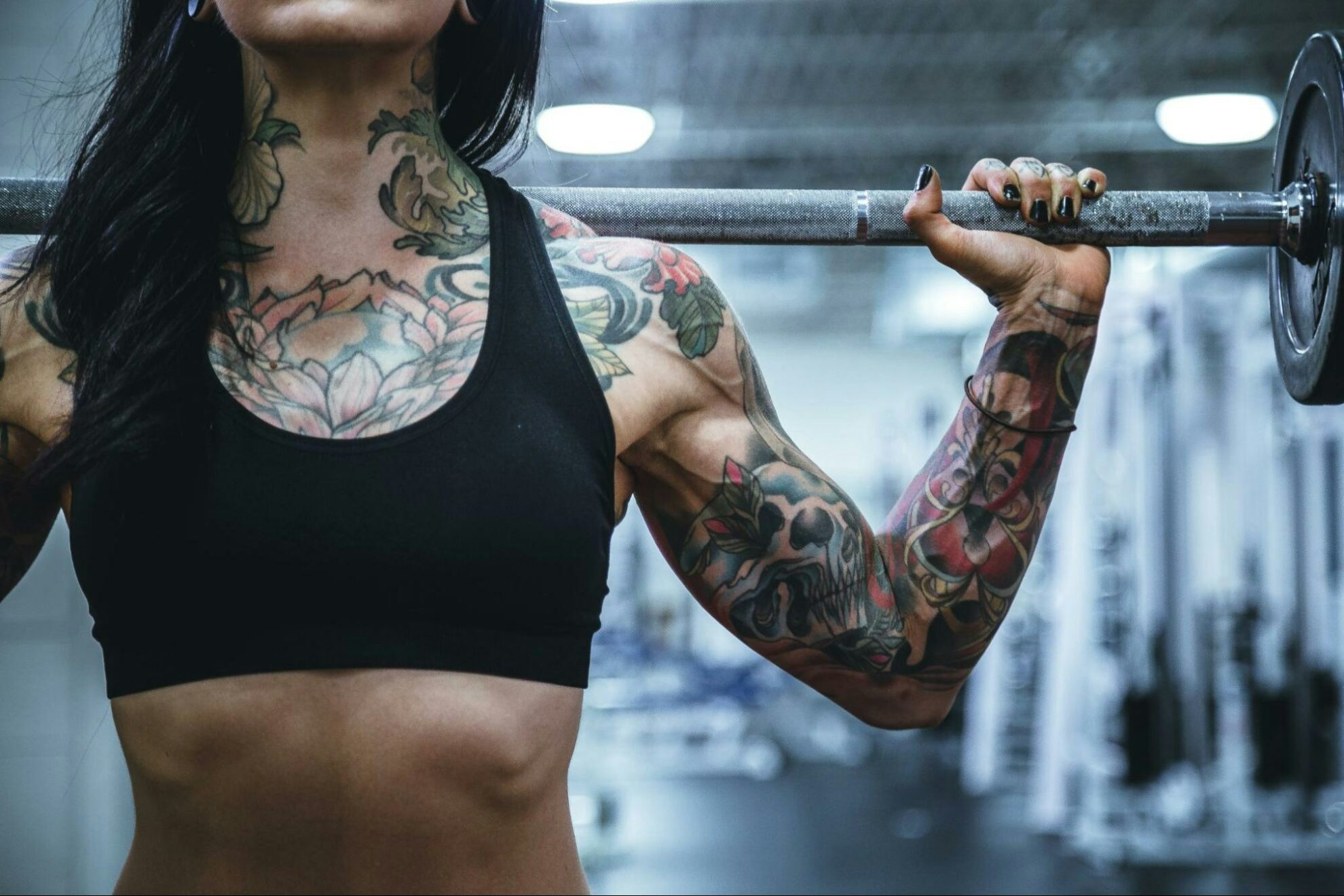
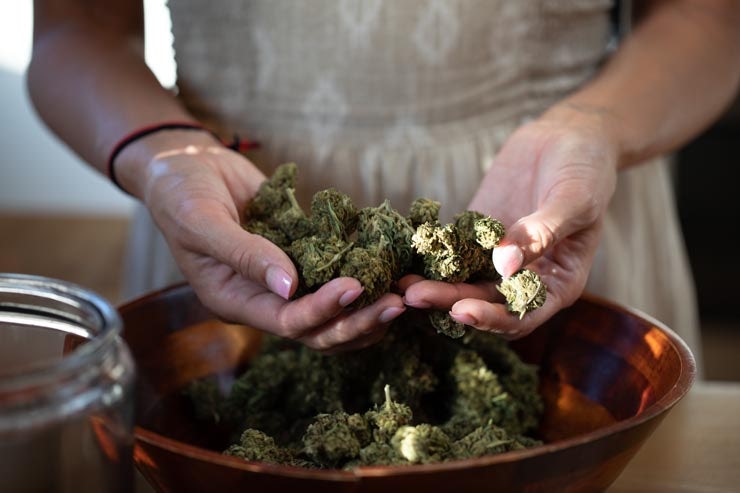


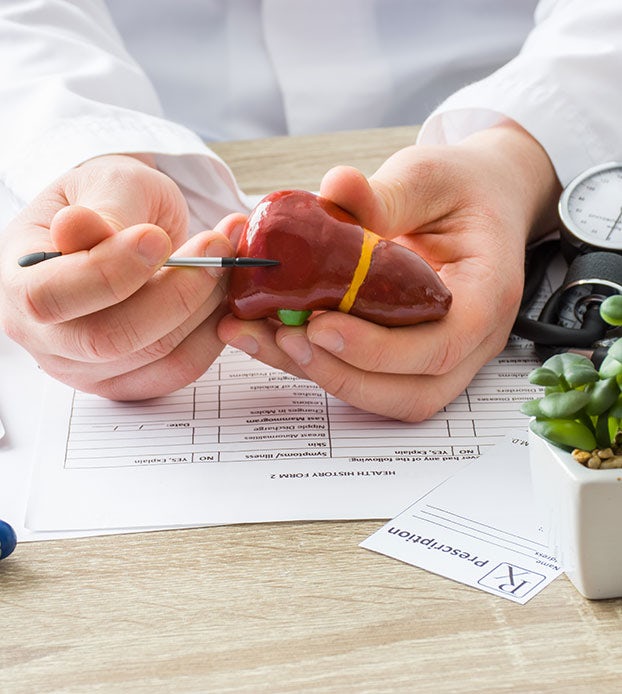
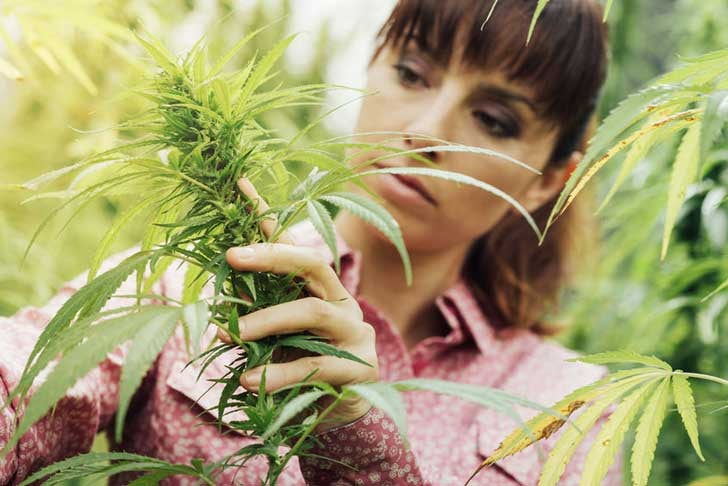










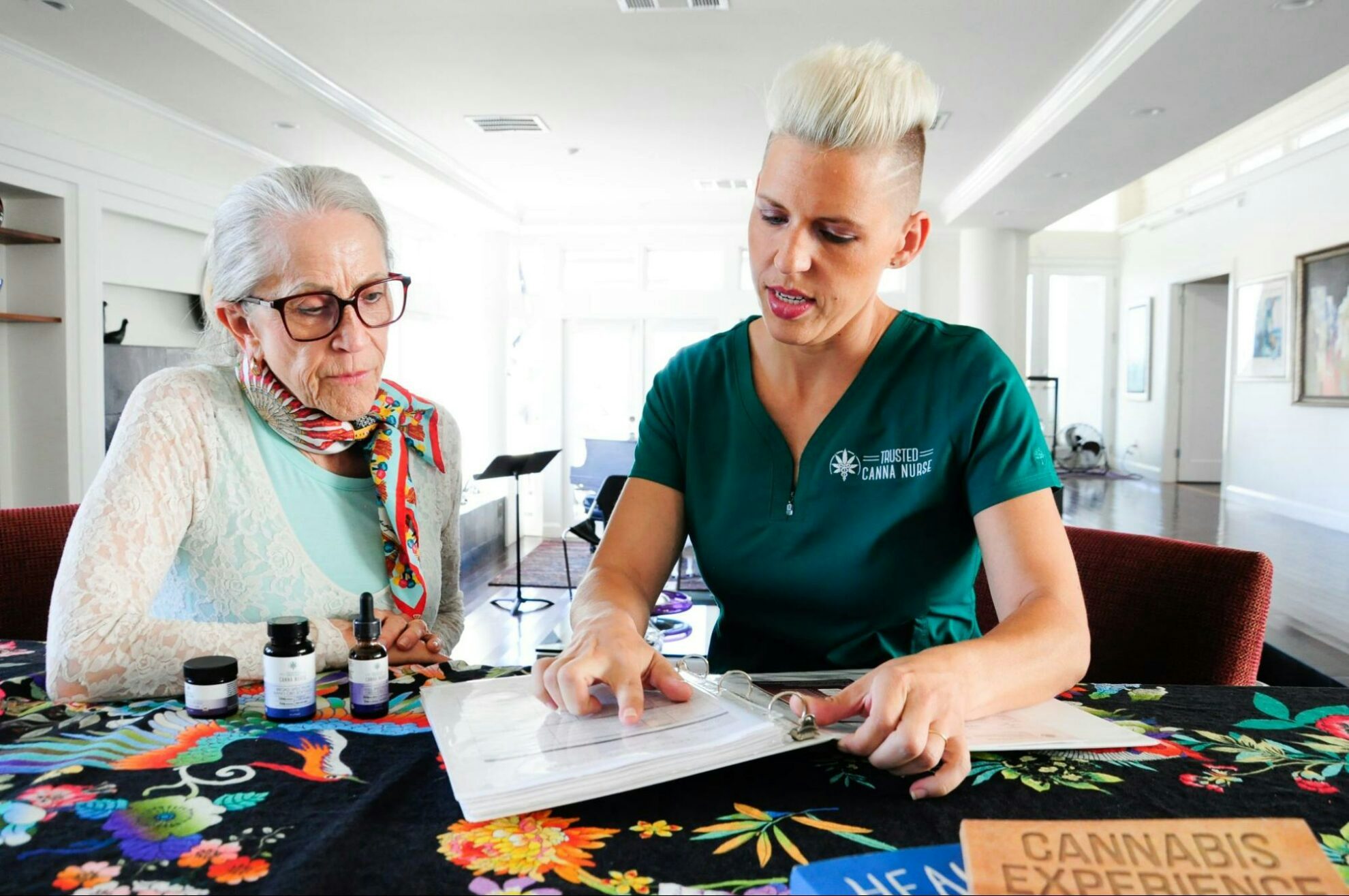

I would have appreciated a little more on the chemistry side to talk about the process of making isolate. I think the reading public might be interested in some of the process and the chemistry required to make these alternative cannabinoids from Hemp.